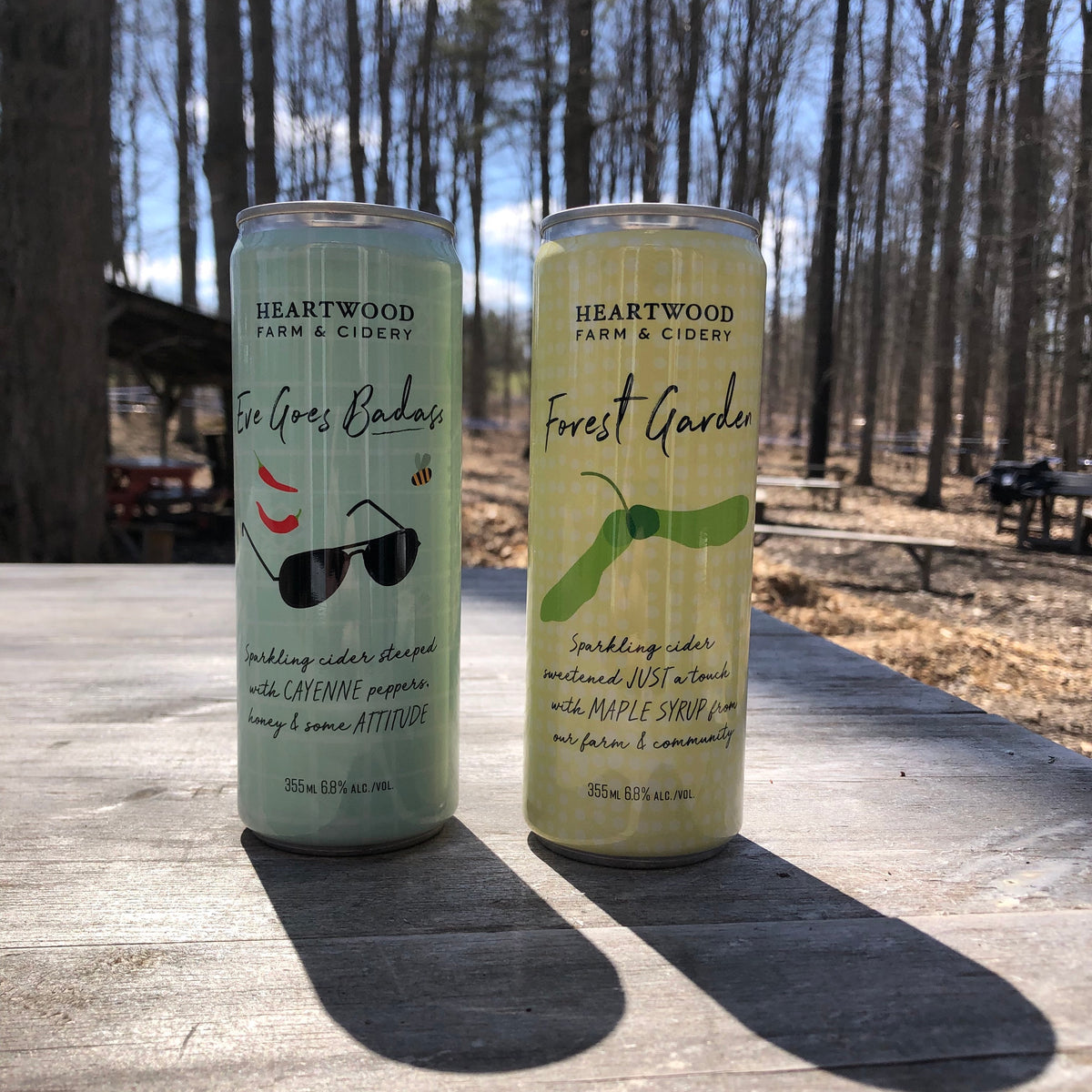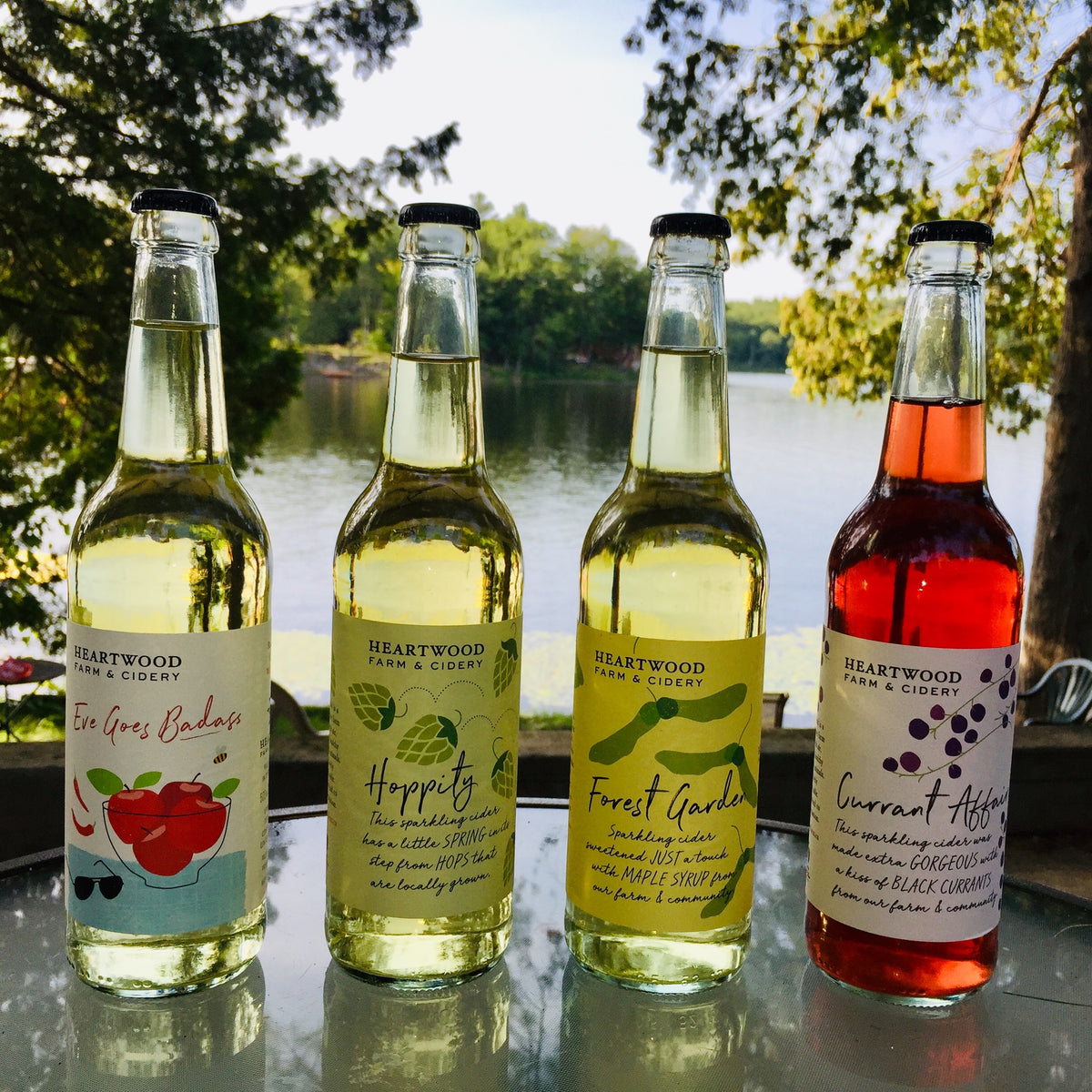Raspy Poet: The Love of Craft
The Raspy Poet is a special cider to me. When Kat Scott, Heartwood’s former cider-maker, handed me a glass of a beautiful pinkish-red liquid last summer, I was immediately taken aback by the sensory experience that came along with drinking the cider. Upon swirling the drink, I caught a whiff of something unexpected; a funky, yeasty aroma that wasn’t present in any of our other ciders at the time. In spite of what the pink, fruity colour might lead you to believe, it wasn't sweet at all; in fact, it was actually bone-dry. Lastly, I noticed sediment at the bottom of the bottle, which none of our other ciders had. I remember wondering how this new cider would go over with our customers, with its funky aromas and residue in the bottle.
Upon remarking about these initial observations, Kat explained to me that the Raspy Poet is bottle-conditioned, meaning that a small dose of sugar and yeast are added to the bottle before sealing the cap. This process naturally carbonates the contents of the bottle, as the sugar is eaten by the yeast, creating CO2 (and alcohol). The ‘funk’ that I smelled was the result of a fermentation occurring in the bottle, without an airlock to allow gasses to escape. It was bone-dry because the yeast that we added before bottling ate all the sugar that was added. Kat also explained that the sediment I noticed are called lees, which are yeast that have eaten sugar, died, and then flocculated to the bottom of whatever vessel they are in. After getting used to the different aromas and flavours that the bottle-conditioning process added to the cider, the Poet quickly became one of my favourite Heartwood offerings.
Fast-forward a full year. A lot has changed; Kat has moved on to new and exciting adventures, after being a great friend and mentor to me as a young and enthused cider-maker. It is August of 2020, raspberries are in season, and it is up to me whether or not we make another batch of the Raspy Poet. The obvious answer is yes.
To make the Raspy Poet, we need around 120 lbs of raspberries. For this year’s batch, we added the berries directly into the tote of cider to age for 3 weeks. The beauty of adding real fruit (rather than juice) to the cider is that the skins and pulp add interesting and more complex flavours to the beverage. In order to make the fruit come through in its full glory, we left the cider unfiltered this year. For unfiltered batches, we often gravity-feed our cider into bottles, as opposed to pressurizing the head of our brite tank with CO2 to make liquid flow. We hoist an empty tote up onto another one, and then pump the cider into the tote above, allowing gravity to pull cider into our bottling line. For bottle conditioning, we added 7 grams/litre of sugar and pitched DV10, which is our chosen yeast strain for most of our ciders.
Once the still, sweetened cider is in the bottle, we have to let it sit for around 6 weeks to make sure that all of the bottles are fully conditioned. After the long wait, we end up with a lovely, flavourful sparkling cider. I love the transformation that occurs in-bottle during those 6 weeks; flavours come out in different, more complex ways, and the refermentation process adds interesting characteristics to the cider that force-carbonating does not.
This batch is heavy on the raspberry, fruit-forward, dry, and totally delicious. I hope you all agree.
1 Response
bruce
Nice article, my golden & blue boy. Your proud dad
Leave a comment
Comments will be approved before showing up.
Also in Maker's Method

From Glass to Aluminum



Matthew Steinman
Author